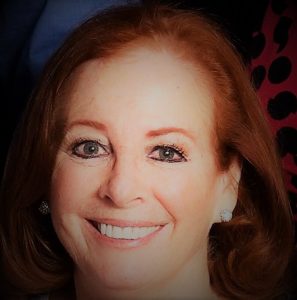
Over 40 years ago, Jack, a friend of Dave and mine, decided to get his doctorate in divinity and enrolled in a renowned D-1 university. Part of his interview process was to read and critique a book explaining the book of Mark that was written by one of the divinity professors. Jack would be given 30 minutes in which to present his oral criticisms to the renowned scholar.
The book was no easy read. Each chapter had at least 140 footnotes, and the end explanation was that nothing happened after the two women encountered an angel at the tomb where Jesus had been buried. The interviewer based that on Mark 16:8: Trembling and bewildered, the women went out and fled from the tomb. They said nothing to anyone, because they were afraid.
For a little background, most of today’s Bibles include another 11 verses in Mark which add that Jesus then talked with several people before he was raised into Heaven, but footnotes explain that these verses were not in the original manuscripts and were added later. The professor’s book stopped at 16:8.
At this point in Jack’s story, I interrupted to counter with the obvious: No matter where Mark ended his writing, Matthew, Luke and John all addressed Jesus’ resurrection and appearance to others. We need to look at the entirety of scripture and not just selected sections. Jack assured me he had used that same critique (which was dismissed because each book, according to the professor, should stand on its own). Jack presented several other arguments to which the professor stated that Jack could have gotten those positions from one of several journals and that none of them were original. He wanted something unique.
Our friend came up with a brilliant defense. The women obviously did talk and share their story or else no one would know that “they said nothing to anyone, for they were afraid.” How could Mark have come up with that if the women hadn’t told someone that’s what happened? (Like I said, brilliant.)
Refusing to be outdone, the professor responded, “Yes, but how do we know they were real people?”
WHAT??????
That’s right. The accomplished, theological master-mind in the Divinity department was an atheist. To him, the Bible was a myth. Jack about fell out of his chair.
It wasn’t until later that Jack came across a quote from atheist-turned-Christian C.S. Lewis’ that might have stymied the professor: “Supposing there was no intelligence behind the universe, no creative mind. In that case, nobody designed my brain for the purpose of thinking. It is merely that when the atoms inside my skull happen, for physical or chemical reasons, to arrange themselves in a certain way, this gives me, as a by-product, the sensation I call thought. But, if so, how can I trust my own thinking to be true? It’s like upsetting a milk jug and hoping that the way it splashes itself will give you a map of London. But if I can’t trust my own thinking, of course I can’t trust the arguments leading to Atheism, and therefore have no reason to be an Atheist, or anything else. Unless I believe in God, I cannot believe in thought: so I can never use thought to disbelieve in God.”
What would the prof have said against that? (Probably that C.S. Lewis wasn’t a real person.)
In case you are wondering, Jack was accepted into the School of Divinity but chose to pastor a church instead. Another brilliant move, if you ask me.